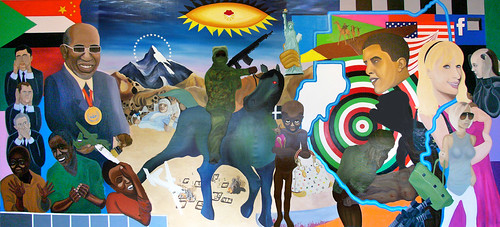 One key point that I didn’t manage to get into for the piece I wrote about Portugal on the Guardian -Comment is Free– a few weeks ago:
One key point that I didn’t manage to get into for the piece I wrote about Portugal on the Guardian -Comment is Free– a few weeks ago:
Corporate Mayhem in Portugal
Although Portugal has never really seen an economic boom on the same scale of many of its European neighbors like Ireland and Spain, there was a period in the late 90’s when the economy was seen as doing quite well. One of the big measures of this success, the number of multinational corporations that opened a production facility or large regional office in the country. Employing lots of people and in theory, contributing tax income for the benefit of every citizen.
In 2001-2002, when I worked in Linda-a-Velha, just outside Lisbon, every morning my bus would pass all the big names that many nations would be excited to have within their borders: Nestlé, Ford, Volkswagon, Agfa, Kodak, Microsoft, Cisco and General Electric, just to name a few. As time passed I met people who worked for these big names, noticed the long hours, hard work, and surprisingly – their uncertain futures at their current jobs. In the years that have passed since this somewhat better economic time, it is big names like these that have repeatedly downsized, moved, and closed down their operations in Portugal. They’ve done so with little notice and even less assistance for their laid off employees. In their wake they left not only unemployment, they also left abandoned buildings, and communities in crisis.
So how does this make Portugal unique when so many people around the world experience such changes? A look at the statistics and the real stories of business being bought, sold, and moved somewhere even cheaper that low priced Portugal would reveal that in fact, Portugal’s strict rules and regulation of businesses does not apply to the multinationals. Excessive roadblocks and red tape for small businesses and individuals looking to get started? – Plenty of that. Basic commitments from large corporations such as contributions to the public well being? -Hardly any.
Now many who have been observing all this happening since the 90’s tend to blame the emergence of the European Union, with its pro-corporate policies and its excessive regulation that hits the smallest and poorest members the hardest. Yet if you zoom out and look at the evolution of the so-called global economy, you can find other examples where some countries who want to attract foreign investment in the quest to become prosperous and modern also get used, abused, and left behind. While the European Union has had a role to play, the symptoms that have made Portugal a very troubled economy, have alot to do with a world economy that says success means profits above all else, and short term gains trump long term sustainability. While they harass and undermine small native initiatives, they sit back and give large multinational entities a free pass to do whatever they please.

 One key point that I didn’t manage to get into for the piece I wrote about Portugal on the
One key point that I didn’t manage to get into for the piece I wrote about Portugal on the